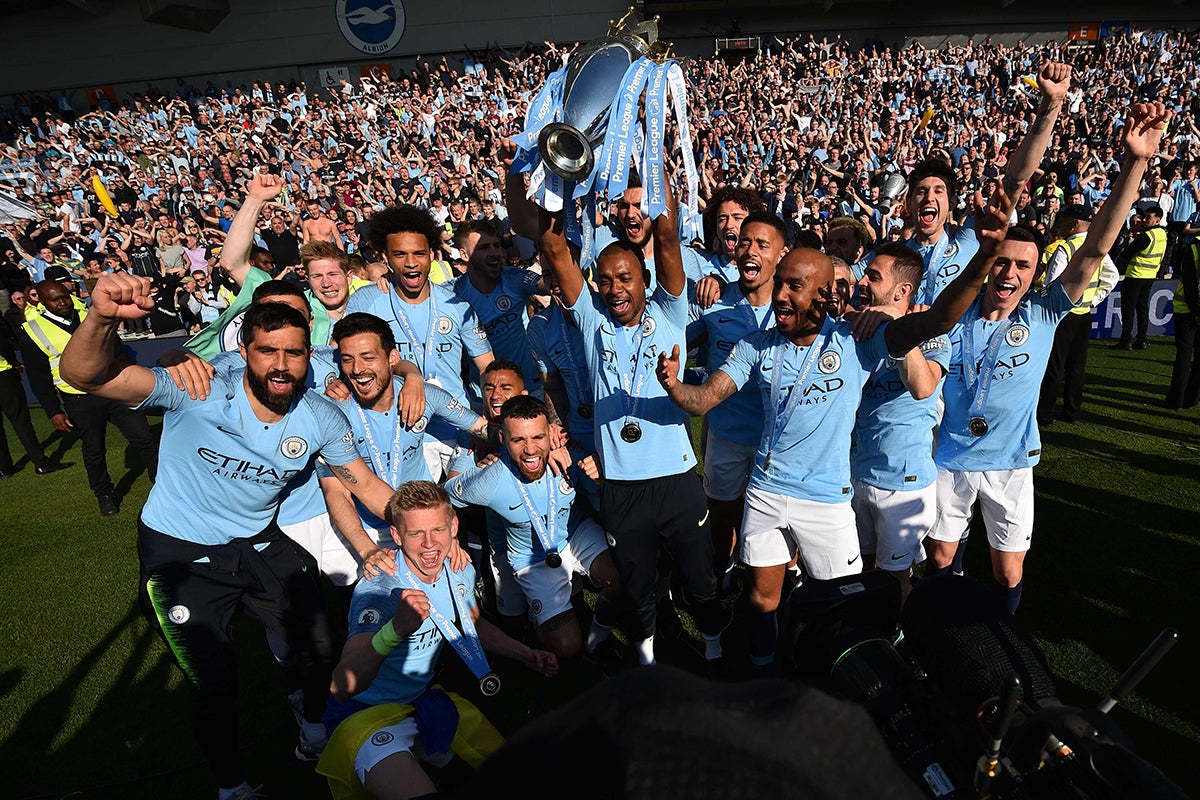Manchester United, City, Chelsea, Arsenal and Liverpool ensure Premier League dominate European football financial rankings
The financial muscle of England’s top tier has put their clubs in a commanding position over their European rivals

Your support helps us to tell the story
From reproductive rights to climate change to Big Tech, The Independent is on the ground when the story is developing. Whether it's investigating the financials of Elon Musk's pro-Trump PAC or producing our latest documentary, 'The A Word', which shines a light on the American women fighting for reproductive rights, we know how important it is to parse out the facts from the messaging.
At such a critical moment in US history, we need reporters on the ground. Your donation allows us to keep sending journalists to speak to both sides of the story.
The Independent is trusted by Americans across the entire political spectrum. And unlike many other quality news outlets, we choose not to lock Americans out of our reporting and analysis with paywalls. We believe quality journalism should be available to everyone, paid for by those who can afford it.
Your support makes all the difference.The Premier League’s financial lead over its European rivals shows no sign of closing after three separate financial reports in two days highlight the English top flight’s unrivalled earning power.
According to Deloitte’s ‘Annual Review of Football Finance’, which was published on Thursday, the Premier League is 72 per cent larger in revenue terms than its nearest rival the German Bundesliga – a gap many around Europe will point to as the main reason English clubs monopolised the finals of the Europa League and Champions League this season.
Premier League clubs combined to earn a record £4.8billion in 2017/18 – up six per cent on a year before – thanks to the presence of five clubs in the Champions League, full grounds, a raft of new commercial deals and the league’s lucrative broadcast contracts.
This picture of rosy financial health is also reflected in reports by Forbes and KPMG, which both look at the valuations of Europe’s richest clubs.
Real Madrid top both lists – with Forbes estimating the Spanish giants to be worth £3.36billion and KPMG estimating their value at £2.84billion – but they also both have nine Premier League teams in their top 20s.
For Forbes, Manchester United are in third (worth just over £3billion), Manchester City are fifth, Chelsea sixth, Arsenal seventh, Liverpool eighth, Spurs ninth, West Ham 17th, Everton 19th and Newcastle 20th, with the Magpies estimated to be worth just over £300million, £50million less than owner Mike Ashley is currently asking for the club.
The KPMG list – which is based on enterprise value, a more sophisticated measure that accounts for debt and cash reserves – has United second, City fifth, Chelsea sixth, Liverpool seventh, Arsenal eighth, Spurs ninth, Leicester 16th, West Ham 17th and Everton 20th.
“The Premier League has confirmed its absolute dominance, having nine clubs on the list and accounting for 43 per cent of the total aggregate value (of the 32 ranked clubs),” explained KPMG’s global head of sports Andrea Sartori.
The Deloitte report, which focuses on profitability and is now in its 28th year, highlights a series of dizzying numbers to illustrate the size of the European football market and the Premier League’s central role in that burgeoning economy.
Overall, European professional football is now worth £25.1billion, with the continent’s ‘big five’ leagues – England, France, Germany, Italy and Spain – accounting for more than half of that (£13.8billion).
That said, the Premier League’s operating profits fell by 16 per cent to £867million in 2017/18, although that is still the second highest level recorded.

Dan Jones, head of the Sports Business Group at Deloitte, said: “We have seen Premier League clubs’ wage expenditure increase at a faster rate than revenue growth in 2017/18.
“This is the same pattern as observed in the second year of the previous Premier League broadcast rights cycles, as clubs continue to invest in playing talent.
“This wage spending is an indication of the competitive nature of the division, with the top clubs competing for financially lucrative places in UEFA competitions, and clubs lower down the division fighting to remain in the Premier League itself.
“With the sale of the Premier League’s domestic and international broadcast rights now complete for the 2019/20-2021/22 seasons, resulting in an overall eight per cent revenue increase, Premier League clubs will receive further increases in central distributions in the coming seasons.”
Jones explained that these increases will not be as significant as the last two sets of three-year broadcast deals but said the clubs should still be able to improve their finances by growing commercial revenues or earning more from match days, two areas where all top-flight clubs believe there is room to grow.
Join our commenting forum
Join thought-provoking conversations, follow other Independent readers and see their replies
Comments